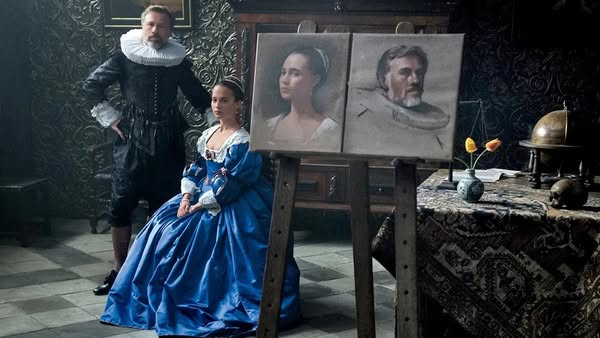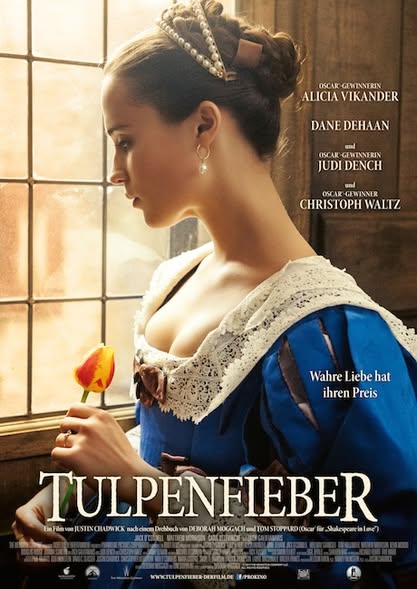Tulip Fever (2017)

Tulip Fever (2017) is a romantic drama directed by Justin Chadwick, based on the novel by Deborah Moggach. Set against the backdrop of 17th-century Amsterdam during the height of the tulip mania, the film weaves a tale of love, desire, and the pursuit of happiness amid societal constraints.
The story centers around Sophia (Alicia Vikander), a beautiful young woman married to a wealthy merchant, Cornelis Sandvoort (Christoph Waltz). Despite her comfortable life, Sophia feels trapped in her loveless marriage. When she meets a gifted painter, Jan (Dane DeHaan), who is commissioned to paint her portrait, a passionate affair ensues. Their relationship becomes a thrilling escape from the confines of her marriage, highlighting themes of longing and the quest for true love.

As the tulip market surges, the film cleverly intertwines the economic frenzy of tulip trading with the characters’ personal lives. The tulip craze serves as a metaphor for the characters’ desires and ambitions, illustrating how the pursuit of wealth can lead to both fulfillment and ruin. The opulence of the tulip trade contrasts sharply with the emotional struggles of the characters, creating a rich tapestry of life in that era.

Visually, Tulip Fever is stunning, with lush cinematography that captures the beauty and vibrancy of 17th-century Amsterdam. The costumes and set designs immerse viewers in the period, enhancing the film’s romantic and dramatic elements. The artistry of Jan’s paintings is mirrored in the film’s visual style, emphasizing the connection between art, love, and desire.
The performances are compelling, particularly Vikander’s portrayal of Sophia, who navigates her desires with both passion and vulnerability. The supporting cast, including Judi Dench as a wise and pragmatic widow, adds depth to the narrative, enriching the exploration of love and sacrifice.

While Tulip Fever received mixed reviews from critics, its lush visuals and emotional depth resonate with audiences seeking a romantic drama. The film’s exploration of love’s complexities, set against the backdrop of a fascinating historical phenomenon, offers a unique perspective on both personal and societal desires.
In summary, Tulip Fever is a visually captivating film that intertwines romance and historical context, exploring the themes of love, ambition, and the human condition. Its lush aesthetic and compelling performances invite viewers into a world where the beauty of tulips mirrors the fragility of love, leaving a lasting impression on the heart.











